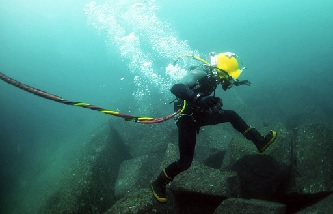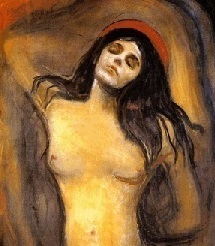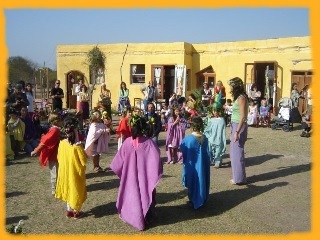Editor's Page
Letter to an Anarchist by Frank Thomas Smith
Dear Anarchist,
I don't blame you for being an
anarchist. After all, I was once one myself. I also read the famous anarchists:
Godwin, Proudhon, Bakunin, Kropotkin, Tolstoy, Thoreau, etc. I don't remember
much of what they wrote, but I do remember that they were convincing. Also you, having been born in Argentina and living all your life here, have
witnessed the stupidity, inefficiency and corruption of governments, of police,
some of whom besides being corrupt and brutal, are more criminal than the
criminals they lackadaisically pursue. And Argentina is not alone in this
respect. So it is understandable that you blame the
institution of government itself; who needs it? We'd be better off without it.
Democracy is a sham because the powerful interests easily manipulate it...
Continue reading
Carta a un Anarquista
Querido
anarquista:
No te culpo por ser anarquista. Después de todo, yo también
lo fui. Y también leí a los famosos anarquistas:
Proudhon, Bakunin, Kropotkin,
Tolstoy, Thoreau, etc. No me
acuerdo mucho de lo que escribieron, pero sí recuerdo que eran muy
convincentes. Además, por haber nacido en la Argentina y vivido toda tu vida aquí, has sido testigo de la estupidez, la
ineficiencia y la corrupción de los gobiernos; de la policía, algunos de cuyos
miembros además de ser corruptos y brutales, son más criminales que los
criminales que persiguen sin mucho entusiasmo. Y la Argentina no es única en
este aspecto. Así que es
comprensible que le eches la culpa al gobierno
como institución; ¿a quién le hace falta? Estaríamos mejor sin él. La
democracia es un engaño porque los intereses poderosos la manipulan con
facilidad...
Continuar
Current Events
How to read Donald Trump - On Burning Books But Not Ideas by Ariel Dorfman
The organizers of the white
supremacist gathering in Charlottesville last month knew just what
they were doing when they decided to carry
torches on their nocturnal
march to protest the dethroning of a statue of
Robert E. Lee. That brandishing of fire in the night was meant to
evoke memories of terror, of past parades of hate and aggression by
the Ku Klux Klan in the United States and Adolf Hitler’s
Freikorps in Germany.
The organizers wanted to issue a
warning to those watching: that past violence, perpetrated in defense
of the “blood and soil” of the white race, would once
again be harnessed and deployed in Donald Trump’s America.
Indeed, the very next day, that fatal August 12th, those nationalist
fanatics unleashed an orgy of brutality that led to the deaths
of three people and the injuring of many more...
Continue reading
Features
Dr. Najib - A Sketch of a Man and a Country by Gaither Stewart
When in 1978 the
31-year old Afghan Communist politician-activist, Mohammad
Najibullah, arrived in Tehran, “exiled” to neighboring
Iran as Afghanistan’s Ambassador, I had just left Iran where I
had worked throughout the year of 1977. Najibullah’s political
party, the People’s Democratic Party of Afghanistan (PDPA) had
come to power in Kabul in April, 1978 in what is known as the Saur
Revolution, the name of the month in the Afghan calendar when the
Communist Revolution took place. Far from united, the PDPA was
divided into two factions: the more revolutionary faction
(Khalq-People’s) that first took power in Kabul in that crucial
year of 1978 (crucial in both Afghanistan and Iran), preferred to
have the charismatic Najibullah of the Parcham faction (Banner) of
the PDPA far from the halls of power.
Continue reading.
Fiction
The Wreckers by JP Miller
Being a wrecker and
living in the Exumas can be a tough, invisible life. You go up and
down the broken chain of Bahamian coral, day after day, trying to
beat the natives to the good spots, searching for wrecks. It is
salty, lonely and hot. But if after a storm you can find a big fat
cruiser jammed against the coral heads you can sure make out. If
she’s lying on her side and not too scattered out or deep, you
can get the brass and copper fittings, just free diving. If you are
really lucky, you can get inside through the open stern to the
staterooms. That is where you find the real goods, like jewels and
gold or silver chains from the state room drawers or even cash from
the pockets of the dead. The bodies just float there, around and
around unable to work their way out, all the while you are looking
back for sharks wondering if there is blood in the water. If she went
down deep and you have to use tanks, it can be a dangerous
enterprise. You gotta get down quick, maximize your bottom time and
slowly ascend, watching that you don’t get the bends on the way
up. That is a wreckers life and his nightmare...
Continue reading
Love in the Time of Spies by Frank Thomas Smith
Rachel
Baumgartner and Dr. Hans Niedermaier were huddled over a map of West
Berlin in a small basement room with no windows. A long florescent
light on the ceiling hummed like a beehive. They were preparing a
list of objectives that the Soviet Mission Military Patrol was to
photograph on its next rounds. Hans Niedermaier, a robust middle-aged
man with a goatee and rimless glasses, was doing the selecting and
dictating to Rachel, who made notes in German and Russian in a
stenographer's spiraled notebook made in West Germany. She was young
and pretty and intense; there was a certain hardness about her which
would have seemed unusual in one so young, if we did not know that
they were in the building in East Berlin that housed the STASI –
East Germany’s State Security organization. It was difficult
for them to think of objectives in West Berlin that hadn’t
already been photographed...
Continue reading
Miryam - Part Five by Luise Rinser
In the evening Yeshua told the story of the sheep
who separated from the flock and was lost. The shepherd left the
flock and went to find the sheep. He found it in a thorn-bush, freed
it, carried it home on his shoulders, called all the neighbors and
rejoiced.
Shimon said: Yes, but what about the other sheep?
What if meanwhile the wolf came? The shepherd saved one sheep and
abandoned the rest?
I said: The story is nice and comforting, but will
every sheep by rescued at the right time by the right shepherd? Won’t
many sheep be torn apart by the wolf before the shepherd notices
their absence?
Miryam, you are thinking in hours, days, years. We
have an æon before us.
All right, but a dead sheep is a dead sheep and
stays one, or doesn’t it?
There is no dead sheep. There is no death. Only
transformation. No sheep is abandoned...
Continue reading
Children's Corner
The Redheaded Pizza by Frank Thomas Smith
Romano, the red-headed pizza-parlor man, has already made at least a hundred pizzas this afternoon. Customers love his pizzas because of the technique he learned in Italy and his artistic touches. In Romano's opinion, a well-made pizza is a work of art. But today he has so much work that he makes one pizza after another almost automatically: cheese, napolitana, onion, salami etc., large, small and medium.
"One large cheese!" the waiter calls.
"Always the same," Romano sighs.
Continue reading - Español
Education
The Economy of a Waldorf School / La economía de la escuela Waldorf by Frank Thomas Smith
A Waldorf school is a fundamentally
altruistic organization and as such is loosely subject to three
development phases – a foundation or pioneer phase, a
bureaucratic (in a positive sense) one, and an integration phase. The
first phase is difficult, but also the most enjoyable in many ways:
few people are involved, who get to know each other well, they are
not only friendly, they often become friends. They frequently
innovate, whether rightly or wrongly. A mistake, if recognized as
such, can be immediately corrected. The second phase is when the
organization becomes too large to continue feeding on the founders'
intuition. In other words, efficient but, hopefully, not rigid or
dogmatic. The name of the third phase, “integration”, may
imply that all problems have been solved and there's smooth sailing
from now on. No, integration – very difficult to achieve –
means having sufficient flexibility to adapt to new necessities
without sacrificing fundamental principles, accepting healthy tension
but avoiding destructive conflict...
Continue:
English / Español
Anthroposophy
Freedom and the Catholic Church / La Libertad y la Iglesia Católica by Rudolf Steiner (Three lectures)
To carry our spiritual
understanding of things farther, we shall need more and more to
turn our attention to certain historical facts. During the last
decades our members have led a pleasant life, devoted entirely to
the acquisition of knowledge from the lectures and discussions
which have been held in different places. Nevertheless, this has
formed an impenetrable wall, over which in many cases there has
been a great reluctance to look out at what was happening in the
outside world. But, if we want to see what is happening in the
world in the right light, if we do not wish to found a sect but a
historical movement — which
our movement can only be — then we need to know the historical background for what
is all around us in the world. And the way in which we ourselves
are treated, particularly here in this place, where we have never
done anything in the slightest degree aggressive, makes it doubly
necessary for us really to look over the wall and to understand
something of what is going on in the world. Therefore, I should
like to combine what I have to say in the next few days with some
historical comments, in order to draw attention to certain facts,
without a knowledge of which we shall really not now be able to get any further.
Continue reading (English) (Español)
The Gospel of John - Lecture 3 - Esoteric Christianity by Rudolf Steiner
Yesterday
we saw what profound contents are concealed within the first words
of the Gospel of John and we shall now be able to summarize our
observations by saying that the writer of this Gospel pointed to
the creation of a pre-humanity in the far distant past and
indicated that, according to Esoteric Christianity, everything
leads back to the Word or the Logos. The Logos was already a
creating power even in the ancient Saturn Period; it then became
Life while our Earth was passing through its existence as the Sun,
and it became Light while the Earth was passing through the
ancient Moon state. Under the influence of divine spiritual forces
and powers, in the course of the three planetary states of
evolution, the human being reached the point in his development at
which he became permeated by the human I, the Earth having by
then developed into our present planet...
Continue reading
Spiritual-scientific Cosmology - Lecture 2 - by Rudolf Steiner
Before we pursue the
history of the development of the universe and, above all, the formation of our
planet Earth, we must make our own certain concepts that westerners no longer
possess because they have occupied themselves for so long with only physical
phenomena. In every book that deals with cosmology, we are told that we only
need to look into space to see thousands and thousands of worlds unveil
themselves before our eyes, worlds that are similar to our solar system, and that
our Earth, the planet on which life has existed for millions of years, is like
a particle of dust within these many worlds; and that man is merely a tiny
being on this particle of dust. Natural science has considered this to be the case ever since
the advent of the Copernican theory. Science tells us how erroneous it was that
man in ancient times saw the Earth as the center of the universe and believed
that cosmic evolution was only a preparation for human existence. Science has
drummed into us how small the human being is compared to the universe, that is
was arrogant of man to believe that the world is fashioned the way it is
because of him...
Continue reading
"Apologia" concerning the publication of the the First Class Lessons: English /
Español
Poetry
Cheese and Chess in Crete - and more by Frank Thomas Smith
To
sit outdoors in Crete
with
you and coffee, hardtoast,
creamy
butter and yoghurt
after
a morning swim in
the rosy-fingered dawn...
And
for lunch at the bubbling port
unidentifiable
sea-things,
lukewarm
vegetables, cheese,
the
deceptive yellow wine
churning
my burning blood,
Continue
Don't go gentle into that good night by Dylan Thomas
Do not go
gentle into that good night,
Old age should burn and rave at close
of day;
Rage, rage against the dying of the light.
Though
wise men at their end know dark is right,
Because their words had
forked no lightning they
Do not go gentle into that good
night.
Good men, the last wave by, crying how bright
Their
frail deeds might have danced in a green bay,
Rage, rage against
the dying of the light...
Continue
The Atacama, a Desert and oher poems by Charlotte A. Jones
Deep in the rain shadow,
vast and forbidding,
this terrain has banished
the fountains of life
for centuries,
leaving desolate landscapes
not even a mosquito can enjoy.
Yet life rumbles
beneath the surface,
evidenced by Láscar's steam.
The land folds and undulates
like lovers locked
in the slow-motion act of creation
driven by the hot
magma of desire...
Continue reading
Words and Music
The Lady is a Tramp by Richard Rogers and Lorenz Hart
I
get too hungry for dinner at eight
I
like the theater but never come late
I
never bother with people I hate
That's
why the lady is a tramp
I
don't like crapgames with Barons and Earls
Won't
go to Harlem in ermine and pearls
Won't
dish the dirt with the rest of the girls
That's
why the lady is a tramp
Continue reading and listening
You can find us under the
Southern Cross in the Traslasierra Valley, Province of Córdoba, Argentina. Visitors always welcome. Just follow the sign that reads: La Cruz del Sur.
Frank Thomas Smith, Editor
Contact
Authors'
Guidelines
so we can advise you when the next issue is ready. Many people are switching to Gmail. If you do, please advise us so we can change your subscription address.
For back issues, use the issue number.
For example: http://southerncrossreview.org/79/index79.html will deliver SCR number 79. For authors or titles, enter names or keywords in the Google search box below.
|

















